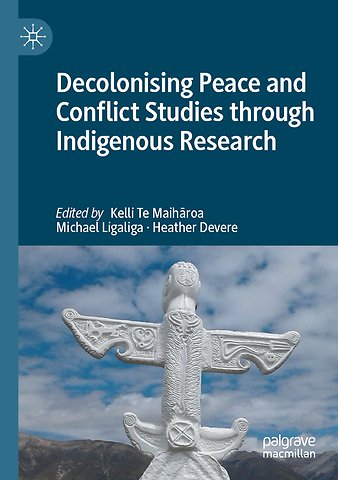Decolonising Peace and Conflict Studies through Indigenous Research
Samenvatting
This book focuses on how Indigenous knowledge and methodologies can contribute towards the decolonisation of peace and conflict studies (PACS). It shows how Indigenous knowledge is essential to ensure that PACS research is relevant, respectful, accurate, and non-exploitative of Indigenous Peoples, in an effort to reposition Indigenous perspectives and contexts through Indigenous experiences, voices, and research processes, to provide balance to the power structures within this discipline. It includes critiques of ethnocentrism within PACS scholarship, and how both research areas can be brought together to challenge the violence of colonialism, and the colonialism of the institutions and structures within which decolonising researchers are working. Contributions in the book cover Indigenous research in Aotearoa, Australia, The Caribbean, Hawai'i, Israel, Mexico, Nigeria, Palestine, Philippines, Samoa, USA, and West Papua.
